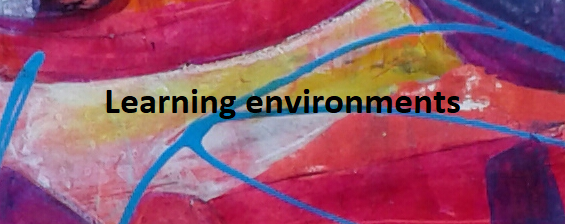

Recognition of Prior Learning
Recognition of Prior Learning (RPL) aims at assessment of existing competencies and competencies to be developed. Proof of evidence such as diploma’s, certificates, and other materials can be maintained in a candidates’ portfolio. On the basis of the assessment of hard skills, soft skills and the Recognition of Prior Learning a personal development plan can be specified.
The output of the service can be used to support a suitable Learning, Working and Certification/Examination service.
E-Learning
The e-learning service supports the candidate with interactive learning couses. These courses are composed of study tasks, that can support a variety of instructional strategies. Each instructional strategy (task type) has specific presentation, interaction and communication & collaboration functionalities.
By applying the e-learning service one studies independent of place and time of delivery. There is always a possibility for communicating with a teacher, who also has access to all activities carried out by the learner.
Blended Learning
The service Blended Learning integrates the physical with the on-line learning activities. This combination combines the benefits of both worlds: face-to-face meetings with possibilities for direct interaction with a teacher and the on-line time and place independent self-study variant.
Instructor-Led
Instructor led training is supported in the following ways:
- in a learning path (course) one can identify a number of off-line activities (workshop, presentation, experiments) which can be planned
- per activity (and per learner) one can upload a document (i.e. a report or a drawing)
- per activity one can grade the activity
Blended Coaching
Blended coaching is the combination of:
- face-to-face coaching
- on-line coaching
This combination can be quite effective, because a major issue is that after initial training people have knowledge, but often have not yet developed a sufficient skill level. Only by putting things in practice this will happen or "learning by doing".
So learning in terms of gradual skill development and working go hand in hand; a coaching process in which a learner gets the right level of control and feedback leads to an optimum result. The face-to-face coaching is very much for reflection on lessons learned and personal experiences. The on-line coaching is aimed at closely following the daily process and being available for advise.
A number of the task types can be applied for the implementation of the on-line coaching.
Coaching / Assessments
The objective of this service is to support a coach and learners during a combined learning and working process. Based on activities of the learner the coach interacts in order to be supportive in the learning process.
The learning environments (making use of the review / off-line task) is used for planning and monitoring assessments.
Monitoring and reporting are in case of formal processes, such as learnerships, also relevant for external entities, such as educational or governmental institutions.
Diagnostic testing
Diagnostic or formative testing is testing the competence level during the learning process, before final summative testing.
Two task types are designed especially for formative testing: the diagnostic task with generic advice and the diagnosic task with conditional advice.
An other task type which can be used for intermediate diagnostic testing is the regular study task, supporting a diagnostic test leading to a number of study activities, before grading via an assignment takes place.
Certification & Examination
Certification and examination address testing activities leading to a formal outcome. Testing can be organised:
- physically in a situation in which people identify themselves and get a log-in code assigned
- in a situation in which a second person (an assessor) also logs in, so not necessarily in a examination room
- at the workplace or at home in which no physical identification takes place, but with on-line monitoring and reporting of all learning and examination activities (including IP-adress, start- and end-time of sessions, answers given in sessions, especially with the certification task)